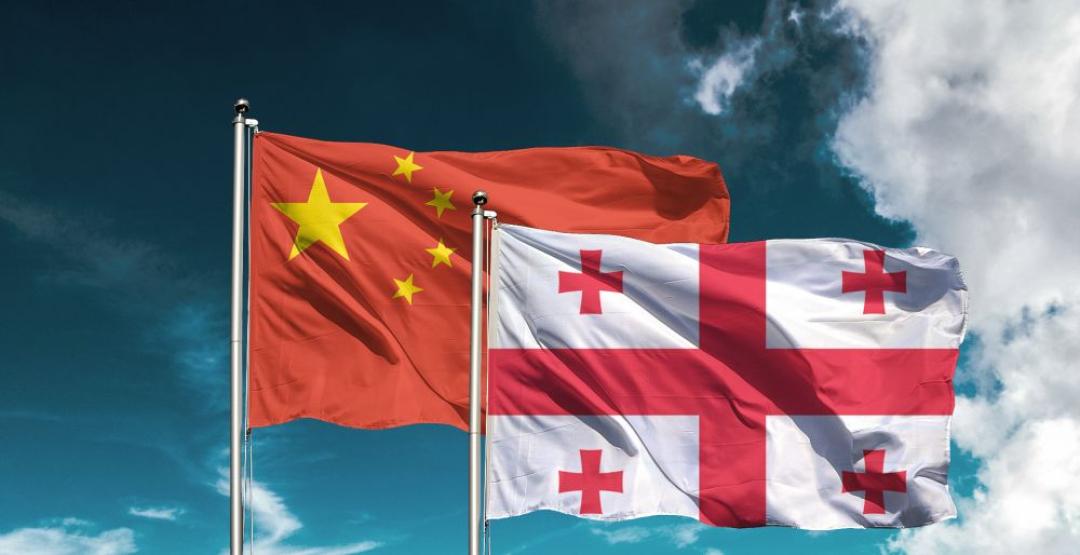
China and the Look to the South Caucasus

China and Georgia signed a strategic partnership agreement on July 31, 2023. The results could be far-reaching for both countries. Trends indicate that Beijing may be moving beyond its traditionally cautious positioning toward the South Caucasus, which it has maintained since the 1990s.
Bilateral relations between Georgia and China have entered a new phase with the signing of a strategic partnership agreement between the two states. The reasons for China's push for a more active stance in the South Caucasus vary, but regional geopolitical processes play a key role. New trade routes, the ongoing war in Ukraine, and growing competition with the United States are pushing Beijing to pursue a more active foreign policy in the wider Black Sea region. Georgia is central to this calculus.
China's interest is in the establishment of a new world order. This order is likely to be largely "agnostic," based neither on a system of strict military alliances nor on any kind of firm multilateral institutions. China will be less interested in the internal political systems of other countries and will focus more on economic and general political cooperation. Such an "agnostic" approach is already welcomed by many countries in the Middle East and Africa. Their number may increase in parallel with China's growing geopolitical power, which in turn raises numerous questions about the U.S. global stance, whether in the Middle East, Eastern Europe, or Southeast Asia. Increasingly, the South Caucasus appears to have become a region where competing powers have redoubled their efforts to expand their influence.
China's growing interest in the South Caucasus and Georgia in particular is based on the region's geographical location. The South Caucasus serves as the shortest corridor from China's westernmost province of Xinjiang to the European Union (EU). The Middle Corridor, which runs from the Black Sea to the Caspian Sea and then to Central Asia, is of growing interest to China. The first sign of this was the statement of the Chinese ambassador to Georgia a few months ago, in which he clearly mentioned the necessity of developing the Middle Corridor. The issue of the future construction of the Anaklia deep-sea port on Georgia's Black Sea coast is linked to the issue of the corridor. It is expected that Western and Chinese capital will clash in their bids for the port, further raising the stakes over the Middle Corridor.
China's growing activities in the South Caucasus should also be seen against the backdrop of ongoing geopolitical changes in the Black Sea. This is the region where Russia is trying to establish its exclusive geopolitical order. On the other hand, the West is seeking to extend its influence over the economically important region through the gradual expansion of NATO and the EU. China may follow this logic as well. The struggle for the Black Sea plays an important role in the unfolding struggle for a new world order, and it naturally pushes Beijing to pursue a more active foreign policy in the region.
The strategic cooperation agreement with Georgia should also be viewed from a Central Asian perspective. Beijing's ambitious infrastructure projects with Kazakhstan and Uzbekistan will not make sense if they are not continued in the South Caucasus. It is no coincidence that China's willingness to upgrade relations with Georgia coincides with rapid changes in trade routes in Eurasia, and especially in Central Asia. In this geographically closed region, traditionally linked to Russia by South-North infrastructure, China is now building new West-East roads and railways. China's "going west" to the EU market, a policy best expressed by the sprawling Belt and Road Initiative (BRI), runs geographically less through Russia than through Central Asia. Much like the Silk Roads of antiquity and the Middle Ages, which were highly adaptable to changing political and military situations, the same could be said of the BRI. The latter is hardly a static initiative, but rather an enterprise that is constantly changing and adapting to new geopolitical realities.
China's push into the South Caucasus could also be explained by another peculiar trend. The South Caucasus and Central Asia, although considered geographically separate regions, are now increasingly perceived as one continuous geographical area. In fact, developments in Central Asia have a direct impact on the South Caucasus and vice versa. The merging of these two regions is creating the so-called "Cauc-Asia" - arguably one of the most significant yet under-reported geopolitical processes of our time. Whichever power controls the road from Xinjiang to Anaklia/Batumi will have a decisive advantage in shaping the global geopolitical game.
Yet China is not emerging as an indisputably dominant country in the South Caucasus. In fact, China does not have the potential to become one. Beijing's push to play an active role in the South Caucasus is more in line with the geopolitical trends engulfing the region. Indeed, the era of exclusive Russian dominance in the region is now over and has been replaced by an order in which six major players (the EU, the US, Russia, Turkey, Iran, and China) are competing for influence at the same time.
Thus, a new period has begun in China's foreign policy toward the South Caucasus. Until now, Beijing has viewed the South Caucasus more as a Russian sphere of influence. As usual, Beijing has refrained from taking drastic foreign policy steps. At present, there are signs that China is trying to look at relations with Georgia from a different perspective.
Emil Avdaliani is a professor of international relations at European University in Tbilisi, Georgia, and is a scholar of the silk roads.
See Also


From Neorealism to Neoliberalism: Armenia’s Strategic Pivot in Foreign Policy After the Nagorno-Karabakh Conflict

Georgia and Russia: New Turn in Bilateral Relations

3+3 Initiative as a New Order in the South Caucasus

Economic Cooperation Between Armenia and Georgia: Potential and Challenges Ahead

